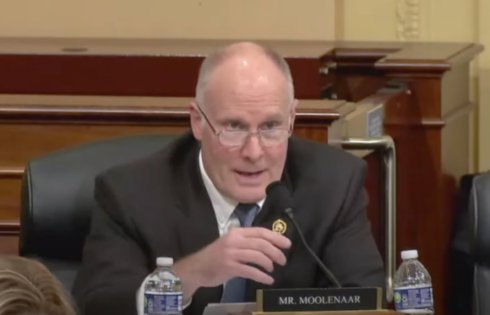
A sociology professor at the University of Connecticut says colleges should mandate “racial literacy” as part of their core curriculum as such “would alleviate some of the stressors that […] historically underrepresented students face.”
Writing in Inside Higher Ed, Daisy Verduzco Reyes notes she sees one particular issue “come up again and again”: Latino students believe their non-Latino peers and even their professors are ignorant of what it means to “be Latino.”
It should come as little surprise that as a sociologist, Reyes also argues that part of being racially literate means “acknowledg[ing] the role of history and the distribution of power.”
“[A]llowing students to choose the courses they will take undercuts the very purpose of a curricular diversity requirement,” Reyes says. “It ensures some students can graduate without really understanding the historical processes that led to the uneven distribution of power and resources across different groups, let alone the processes that create the groups themselves.”
Professor Reyes says the necessity of a racial curricular mandate is due in part to “white fragility,” a term coined by the University of Washington’s Robin DiAngelo. DiAngelo contends white fragility comes from “racial illiteracy or the lack of awareness […] that their [white] ‘race has meaning and grants unearned advantage.’” Further, DiAngelo believes white folks who view people as individuals rather than as part of group based on skin color are “dangerous.”
Another benefit of requiring racial literacy courses is that “research shows” those “who do not enroll in diversity courses may develop more racially biased attitudes, while those who enroll do not,” writes Reyes. As one should always indulge a bit of skepticism when someone utters “research shows,” Professor Reyes might want to consider this study: “Social scientists have long known that if you try to control people’s thoughts and behavior, they rebel. That’s what we find — programs designed to reeducate managers or stop them from discriminating directly tend to backfire.”
Consider: Despite Reyes’ contention that Latino students are worried their peers and teachers aren’t educated on what being “Latino” entails, the professor also says Latino students tell her (and is confirmed by her own research) that Latino experiences are “not monolithic.” (Which makes perfect sense; how much would Guatemalans — 40% mestizo, 40% native — have in common with Argentinians who are mostly of European descent?)
Here again we see an inherent contradiction: If Latino experiences are not “monolithic,” how do we “educate” (white) people on those experiences? Not to mention, does not Professor DiAngelo contend it is “dangerous” to view people on and individual basis?
Read the Inside HIgher Ed article.
MORE: Study finds mandatory diversity training backfires
MORE: U. of Oklahoma to begin mandatory diversity training
IMAGE: YouTube
Like The College Fix on Facebook / Follow us on Twitter






Please join the conversation about our stories on Facebook, Twitter, Instagram, Reddit, MeWe, Rumble, Gab, Minds and Gettr.